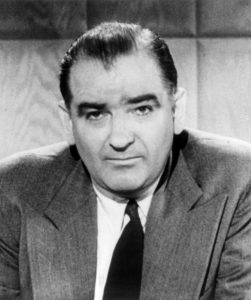Santos created an avatar to enact the resume he wished he had.
Those of us who have spent their careers parsing the language of everyday life know the challenges of sorting out fiction and fantasies from hard realities. The “fiction/fact” dichotomy is easy to imagine, but hard to apply to the idiosyncratic worlds of politicians, influencers, business spokespersons and others. Over many articles and books, I don’t think I ever felt comfortable to use the word “liar” to describe a public advocate. That’s a term for a polemicist rather than a scholar.
But not always.
On the very best evidence, New York Representative George Santos is a liar. As the nation knows, he makes things up that can be fact-checked to the highest levels of certainty. In spite of what he claimed in his campaign, he is not a graduate of neither the City University of New York nor NYU. That makes it all the harder to accept that he was in the top one percent of his CUNY class. Nor did he have a Wall Street career with Goldman Sachs and other investment firms. And his mother did not work at the World Trade Center. (Bless her heart, immigration records show she was a hard-working nurse in Brazil, and a house cleaner and health aide in Queens.) And by all accounts he is far more Catholic than Jewish.
Grifts too numerous to list.
The list of fabrications goes on with a list of lies that would be considered far too brazen for even a fantasy film screenwriter. It’s clear Santos created an avatar to enact the resume he wished he had. Among other feats, it erased his various evictions, as well as charges of theft pending in Brazil. And it mostly worked. He got elected to Congress, seemingly raised campaign money, and initially gained the approval of a party with its own truth-testing issues.
As a fake, he may do real harm in Congress and with his new committee appointments. It is hard to imagine how he will overcome his character and credibility deficit. Yet–and here’s my point–he has inadvertently provided the nation and his party with a solid benchmark for understanding how Truth must sometimes be obliged. If many Americans could talk themselves into believing that votes were “stolen” in Arizona, Pennsylvania and elsewhere, the Santos narrative allows for no such magical thinking. His lies can’t be finessed. So fantasy-prone Americans –especially candidates and legislators in Washington and across the nation–may need his case to be reminded that Truth and character matter. His existence in the House of Representatives is thus a useful antidote. Moreover, his story is cautionary tale for those of us exercising the modernist impulse to always hold out for the possibility of “socially constructed truth.” We need the example of lies that can’t be explained away even through a fog rhetorical doublespeak.
![]()


